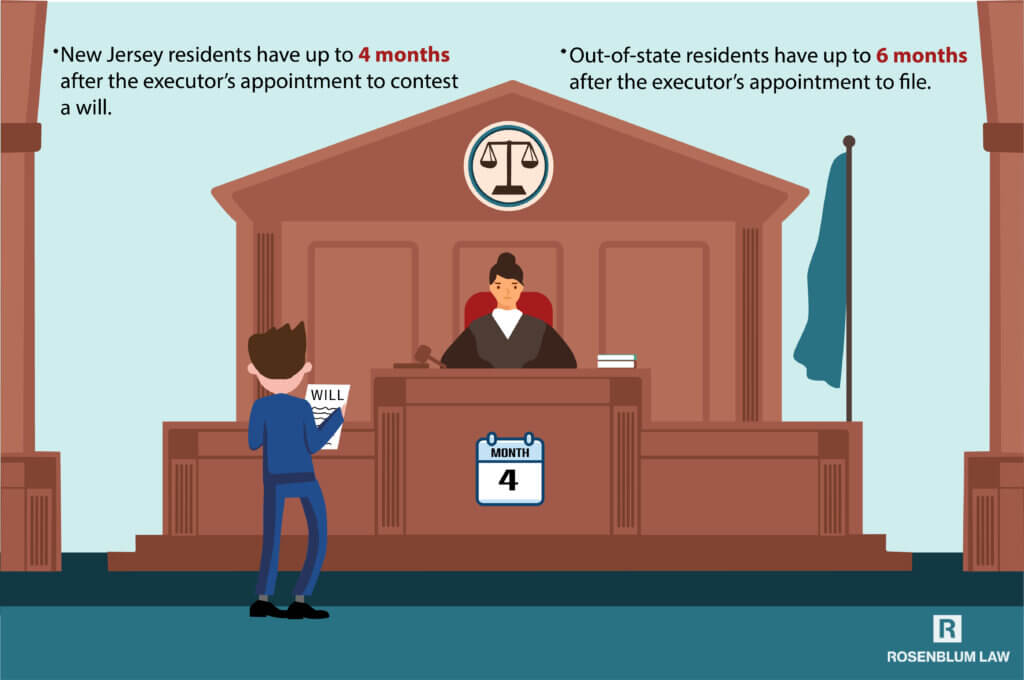
Much of the talk surrounding a last will and testament regards them as a sturdy way of preserving the intentions of their creator after their death. But does this mean that wills are set in stone? Of course not!
Although often a relatively difficult area to succeed in, it is entirely possible to contest a portion, or even an entire will. Now, under what circumstances might someone wish to contest a will? In this article, we will aim to answer that question, along with describing the circumstances, process, and possible barriers when it comes to contesting a last will and testament.
What Is a Last Will and Testament?
In brief, a last will is a written document detailing what a person wants done with their property and assets once they die. A properly written will is legally binding, and must be signed by the subject of the will, called the testator.
Effectively, a last will is a set of specific instructions enforced by the courts and dictated by the testator on how to handle their affairs after death. When the creator passes away, the will often goes through a process called “probate”, where a court will sort out various legal matters surrounding the will and begin the asset distribution process by assigning an “executor” to oversee it.
For more details on what a will is, the benefits of having a will, and how to create a will, check out our article on creating a last will and testament in New Jersey.
Why Might Someone Want to Contest a Will?
Courts will often lend much credence to a will, because it functions as the voice of the deceased, someone who can obviously no longer communicate their intentions. Most wills go uncontested in New Jersey. However, occasionally a situation occurs which casts doubt on whether the intentions of the testator’s wishes are being accurately conveyed within the will.
Most often, doubt comes from last-minute changes to a will, or even wholesale rewrites of a will. Particularly in situations where the deceased has spent their last days isolated or dependent on someone other than their spouse. If a beneficiary feels that a will was negatively influenced by a third party, they have the right to challenge the will in order to assert their case over what the testator truly intended, typically to the benefit of the beneficiary.
While initiating a challenge to a will is not difficult, it does require a substantial amount of evidence for success. Consulting with an experienced estate attorney will help determine whether challenging a will is realistic, especially since outcomes vary wildly based on the specific circumstances.
Who Is Allowed to Contest a Will, and on What Grounds?
In the vast majority of cases, there are three types of people allowed to contest a will:
- A beneficiary who is named in the will
- A former beneficiary of a prior version of the will, or someone who would otherwise benefit from the will if the current iteration would be invalidated
- Someone who would receive a benefit if the will was invalidated and there were no prior versions of the will to probate.
To illustrate, let’s say Cliff was named in his grandfather’s will, which had been written 30 years prior. Unfortunately, in the last year of his life, his grandfather fell terminally ill and required hospice care. Mysteriously, approximately two months before his death, Cliff’s grandfather amended his will and allocated Cliff’s entire inheritance to his hospice worker, much to the surprise of Cliff and his family. If Cliff feels he has evidence and testimony to show that his grandfather was the victim of undue influence by the hospice worker regarding the changes to his will, he has the grounds to challenge it.
Cliff would need to show that his grandfather faced “mental, moral or physical” exertion by a third party that was so strong under the circumstances that there is no way his grandfather was asserting his own free will in designating his assets. However, under New Jersey law, testators have substantial freedom to assign their assets to whomever they choose. Cliff’s evidence and testimony will need to be air-tight in proving that his grandfather was subject to undue influence. Any proof that Cliff’s grandfather amended the will under his and only his genuine intentions will cause the challenge to fail.
Luckily for Cliff, much of this might be avoided due to suspicions the court might have when initially reviewing this situation. A vulnerable grandfather under close supervision by a caretaker changing his will last-minute is certainly a suspicious situation the court would scrutinize. Even if the court does not take action themselves, it’s relieving that Cliff has a route he can take himself to challenge the validity of the new will.
Other grounds for challenging a will in New Jersey include:
- Incapacity – If the court declares the testator to be incapacitated, then a will created during the period of their incapacitation will be invalid
- Absence of formalities – There is a specific set of rules that a testator must follow to create a valid will, and if any of those formalities are not included in the creation of a will, then a court has discretion in declaring a will invalid
- Forgery, fraud, and confusion – If any part of the will appears to be forged or misrepresented due to influence by a third party, a will can be challenged. This also extends to ambiguity in how the will is worded, and the court can turn to outside evidence to establish the true intention of the ambiguous statements within the will
Additionally, Under New Jersey state law (N.J.S.A. 3B:8-1), a decedent’s spouse is entitled to one-third of the estate of the deceased spouse, regardless of whether it is included explicitly in the will.
How to Contest a Will in New Jersey
First and foremost, the will must belong to someone who died in New Jersey, or it cannot be contested there. If this requirement is satisfied, then there are two key ways to begin a challenge of a will:
- Pre-probate challenge: If the will has not been filed, which initiates the probate process, then a motion called a “caveat” can be filed. This stops the probate from happening, but further action is required to continue the challenge, because it is technically a separate legal issue from the probate process.
- Post-probate challenge: If the will is in the process of probate, a proceeding should be filed directly with the court handling the probate
A proper challenge to probate must happen within four months of the appointment of the executor, the person who oversees the distribution of the estate in accordance with the will, if the challenger is a New Jersey resident. Out-of-staters who are challenging a will are given slightly more flexibility at six months after the executor is assigned. Both periods may be extended by up to 30 days if the challenger lacked notice of the probate proceedings. If a challenge is successfully initiated, be prepared for a long and arduous battle.
A challenge to a will is also often very costly. Much evidence and testimony will be required, and it is all but essential that an established estate attorney will be necessary to make sure the challenge has the highest probability of success and efficiency.

Why Hire an Attorney?
As we’ve stated numerous times, challenging a will is far from easy and is hardly a quick process. Technically, no one can be barred from challenging a will, but only working with a qualified attorney will ensure the highest chance of success with a challenge, or even guidance on whether a challenge is the best option for remedy. At Rosenblum Law, our experienced attorneys will work with you step-by-step to figure out whether contesting a will is a viable solution, and if so, the best way to navigate a contest. Call us now to get the process underway with a free consultation.


